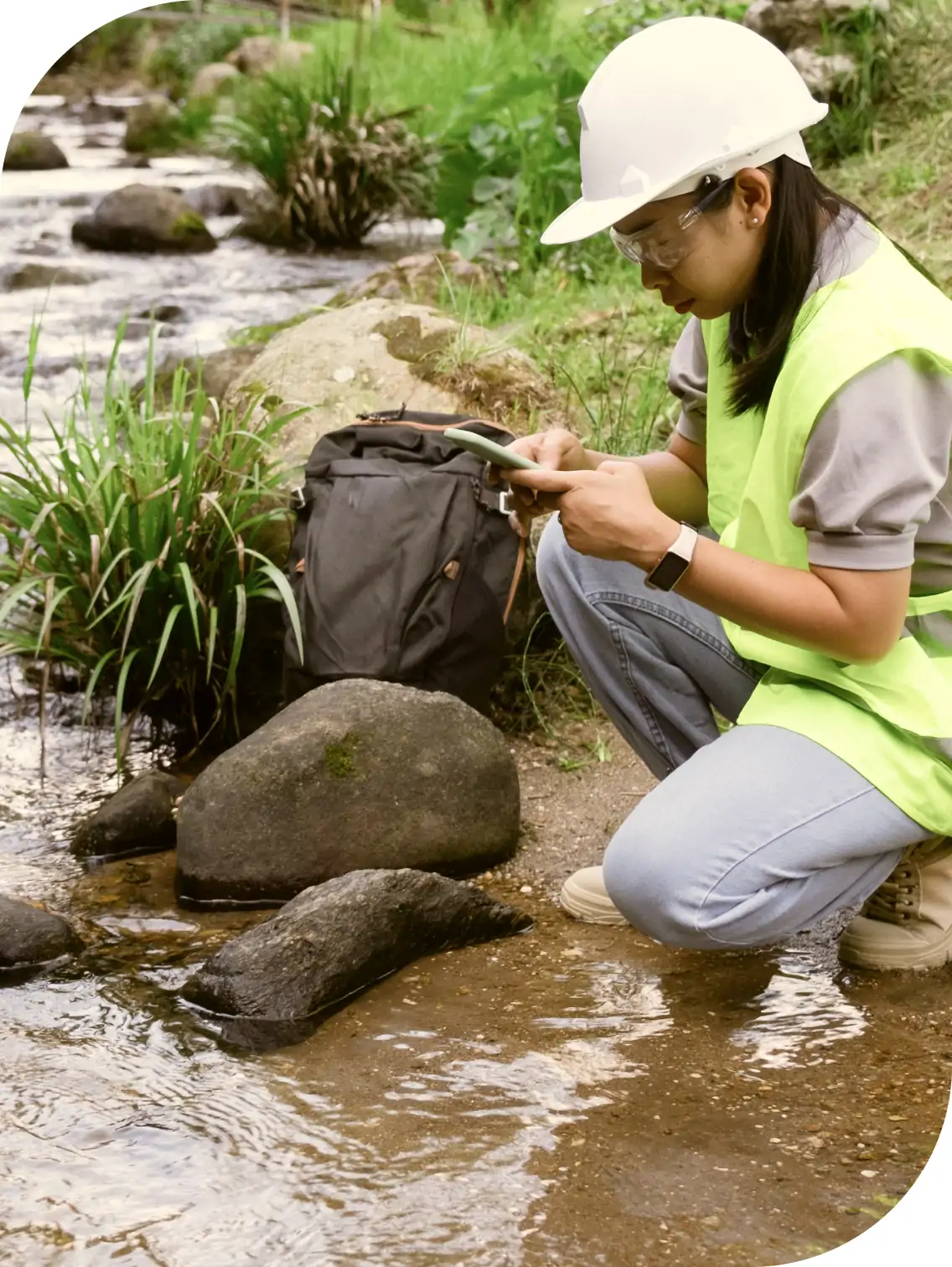Common use cases
Students

Design and modify your project anytime, anywhere with Locus.
As a student undertaking the data collection component of your project you'll be spending a lot of time designing your sampling methodology. It's important to get it right at the beginning, but in reality things can change!
Let's say you are beginning your field work and your design involves taking water samples along a creek. According to your design you are collecting information about each sampling site (in Locus we call this an 'Asset'), you make notes about the substrate and the types of aquatic plants growing at each site (we call these 'Descriptors').
One day you are out collecting your water samples and you notice that your 'assets' are also characterised by the different terrestrial vegetation growing nearby. With the Locus mobile app it's no problem to add a new descriptor to your project design in the field, even without an internet connection! Simply create the new descriptor and it will immediately be available to add to your asset attributes, all changes will automatically be saved locally and will sync to your project account once you are back in range.
The same goes for making changes to the types of samples that you collect. Let's say you began by only collecting water samples at each site, but one day you decide to also collect aquatic plant samples. No problem! You can add or edit or remove sample types any time you choose, online or offline.
The Locus mobile app makes data collection super flexible! It gives you, the project owner, the ability to modify your project however you want and wherever you are!


Research team

Efficiently manage your research team and workflow with Locus.
As leader of a research team it is your job to manage the operations of your project and the workflow of your team.
If you are running a large project it will be important to ensure that everyone involved with data capture is given the right permission to do their job. Your team may be composed of two or three senior researchers that are permitted to make changes to the type of data collected and to export data. But you also might have several students in your team that you only want to be able to collect sample data and nothing else. No problem! In the Locus app, when you invite new members to a project you have total control over the permissions for each user. You can also add or revoke permissions as you go.
Lets say your project involves collecting data along predefined transects or within predefined areas. As project owner you can draw polygons and polylines on the map for your team to see. If you assign the right permission you can also allow team members to do this themselves which is great for being able to measure distances and areas during site selection.
When a sampling site is selected your team will identify this as an 'Asset' and assign attributes (called 'Descriptors'). This is displayed as a marker on the map interface. Because the Locus app has real-time updates you and everyone else on the project will be able to see instantly when an asset has been deployed in the field. This is great for enabling your team to work effectively and manage their workflow.
Infrastructure company

Streamline your team's field data operations with Locus.
As a manager of an infrastructure company with a distributed team it's important to you that your team can work efficiently and effectively. Let's say you are running a team that is inspecting hardware or assets in the field across a large geographic area. You need to know that your team will be able to locate the assets on their inspection roster and collect the right data for the right asset. The Locus app has an inbuilt navigation feature that will show driving and/or walking directions directly to any selected asset on the map.
Many infrastructure companies choose to identify assets with a barcode / QR code system. By using the Locus barcode scanner to enter new assets or to bring up logs for existing assets your team will greatly reduce human error and work more efficiently.
The Locus app also allows you to track the workflow of your team. All inspection logs (samples) are updated in real time and appear associated with each asset and also as a data table that can be exported via email, messaging services and uploaded to Google Drive.
